Do you have what you need to make your garden grow?


Garden Center
Store Hours
Mon-Sat:
6:00am - 10:00pm
Sun:
7:00am - 8:00pm
Curbside:
09:00am - 6:00pm
Location
Popular at Your Garden Center
Garden Center Supplies
Garden Center Popular Plants
Garden Project Calculators
;Resize=(703,395.44))
Grass Seed Calculator
When you're ready to seed your lawn, our calculator helps you estimate the amount of grass seed you'll need to get the job done.
;Resize=(703,395.44))
Mulch Calculator
Enter your preferred material, the square footage and mulch depth of the coverage space for accurate results.
;Resize=(703,395.44))
Fencing Calculator
We'll calculate the amount of fencing you should purchase based on your property needs.
Shop Outdoor and Garden Brands
Frequently Asked Questions About Gardening
What can I do with the extra wood after tree trimming or tree removal?
Log splitters leave you with more manageable chunks of wood, while wood chippers make tiny wood chips. After pruning trees and bushes with a gas chainsaw or hedge trimmers, clean up the debris in a wood chipper. If your trees are in good health, the bark chips and chopped wood make fresh mulch that you can spread around your fall flowers and plants. If you removed a tree, you can either get an axe or a log splitter to divide the downed tree into smaller pieces. The wood splitter will be quicker and a wise investment if you're doing a large amount of tree cleanup.
How can I get rid of all the leaves in my yard?
Although it may sometimes feel like a losing battle, you can keep on top of leaf maintenance. For a light workout, a more silent cleanup method, and an economical choice, go with work gloves, a rake, and lawn bags. We also have leaf blowers if you'd rather use an outdoor power tool instead.
What's the best way to store my garden tools for the season?
Give your yard and garden a final cleanup for the season, then store your tools for the winter. Give your tools a soak in soapy water to remove dirt and grime, then dry them thoroughly. Next, soak them in a bleach and water mix for 20 minutes to kill off any bacteria or fungi, and follow with a rinse. Then, scrub away rust specks with a wire brush, oil them with vegetable oil or WD-40 if necessary, and make sure they're dry before hanging them in a shed or garage.
How do I prepare my outdoor spigots for freezing temps?
Protect your outdoor spigots from freezing temps by draining and covering them with faucet covers. With all hoses disconnected, turn off the indoor valves that control the spigots, then open the taps and let them run until the water stops. If you have in-ground sprinklers or an irrigation system, drain those, too, per the manufacturer's instructions. You may need an air compressor to get all the water out.
What tools do I need for snow removal?
In climates where it gets cold and snowy, preparing your snow removal tools is key. Snow blowers are great, but keep a snow shovel handy to take care of trouble spots or chip away ice patches. We carry high-quality electric snow blowers and gas snow blowers. Rock salt and ice melt can clear walkways with less effort and help keep you safer when you make quick trips to the car or mailbox. Prepare now before the snow starts falling.
Garden Project Ideas

Learn how to safely hang Christmas lights on your roof, windows, and trees with our effective setup guide for the holidays.

Prevent damage! Easily winterize your sprinkler system to avoid costly repairs from freezing temperatures with our instructions.

Choose the perfect Christmas lights. Compare LED, traditional, and smart options using our helpful guide to decorate your home.

Choose the perfect real Christmas tree. Our guide covers types, selection tips, and advice for keeping your tree fresh all season.

Find the best snow blower for your needs by comparing single-stage, two-stage, electric, and powerful three-stage models easily.

Learn how to choose the perfect snow shovel by exploring ergonomic designs, durable materials, and specialized features.
The Home Depot Sw Las Vegas Garden Center
Colder temperatures often mean it's time to wrap up the gardening and outdoor work for the season. However, if it's not freezing outside, there are usually other projects to knock out. In the meantime, enjoy your beautiful green plants indoors. Read on for more on final leaf and tree cleanup, indoor gardening, giving next year's garden bed a glow-up, or making the most of a break in the cold weather.
Leaf Upkeep and Tree Maintenance
Between cold snaps, you might still be able to get out your work gloves, chainsaws, pole saws, and pruners. If you haven't done it yet, focus on cleaning up and preparing for next year. Leaf maintenance is a concern even late in the season in warmer climates, so check out leaf blowers, rakes, and lawn bags. Remember a wheelbarrow and buckets to easily transport leaves and branches.
Indoor Plants You'll Love
Enjoy caring for indoor house plants? Watering, trimming, and attending to your plants can be peaceful. Indoor plants can help cleanse the air, brighten the mood, and cheer up any room. Many types of plants will thrive indoors, from fruit trees to bonsai trees to traditional potted plants like peace lilies. Low-maintenance indoor plants are great for new or nervous gardeners, and succulents thrive with little watering. If you have furry friends, be sure to look for cat-safe indoor plants or dog-safe plants. As long as the plant pots are big enough and you follow the directions for sunlight and watering, you'll soon have a gorgeous and green indoor garden. Remember to place decorative dishes beneath them if the pots don't have built-in overflow dishes to catch any extra water.
Garden with Air Instead of Soil
For a different type of indoor planting, try hydroponic gardening. Hydroponics are an unconventional choice for indoor gardens. You can also keep them going year-round if outdoor raised beds aren't an option or the existing soil is questionable. A hydroponic garden uses water infused with nutrients and fertilizer to keep plants growing in something other than dirt — like perlite, sand, or rock chips. It's an excellent way to grow vegetables and herbs. Later in the year, you can just snip an herb or pick a fresh veggie to incorporate into your meal. You can also use hydroponics to grow some select types of succulents.
Spread Nutrients
Give your house plants a nutritious place to grow with proper soil and fertilizer. Potted plants all do best with specialty potting soil. Keep in mind that succulents need a sandy soil mix that allows for lots of drainage. For optimal results, always match your soil to your plants when transplanting to larger containers. Fertilizer replenishes and adds trace minerals and nutrients that your soil may lack. Fill in the blanks with fertilizer. We offer a variety of non-organic and organic plant fertilizers to keep your indoor plants healthy and happy.
Add Mulch and Decorative Retaining Wall Blocks
It's not too early to begin planning for the spring. Measure the perimeter of your garden and crunch the numbers to see how many retaining wall blocks you'd need to surround or accent your garden. Use our mulch calculator to figure out how much you'll need to buy when the temperatures warm. Give your garden a finished look with rubber mulch. It overwinters just fine and looks new longer than bark chips or other mulches that fade with weathering.
Get Cozy Outside with a Fire Pit
Stretch out warmer winter evenings with a fire pit, outdoor fireplace, or patio heater to take off the chill. No matter if you're looking to heat a spacious deck, a small patio, or a cozy back porch, we've got options. All you have to do is find the one that matches your vibe. We've got fire bowls and fire pit tables ready to warm your outdoor space. Check out stylish propane and natural gas fire pits in a variety of shapes. We've also got wood-burning fire pits and the firewood to stoke them. You could also build your own using a fire pit kit or create a custom in-ground design with pavers. Stop by your local garden center to see what's in stock.
Ease Into Winter
This winter, shore up your yard for the year with us. We've got everything you need for enjoying outdoor company and planning for the spring. We'll be here when it's time to shop our wide variety of outdoor living and spring garden care products online, in your local store, or in our mobile app.
Nearby Stores
Find Another Store
9705 W Charleston Blvd
Las Vegas, NV 89117
3.11 mi
Mon-Sat: 6:00am - 10:00pm
Sun: 7:00am - 8:00pm
861 S Rainbow Blvd
Las Vegas, NV 89145
4.52 mi
Mon-Sat: 6:00am - 10:00pm
Sun: 7:00am - 8:00pm
7015 Arroyo Crossing Pkwy 3
Las Vegas, NV 89113
4.69 mi
Mon-Sat: 6:00am - 10:00pm
Sun: 7:00am - 8:00pm
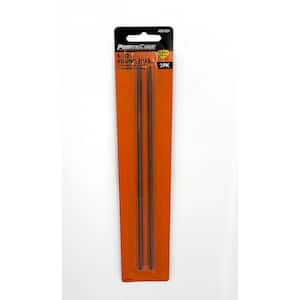
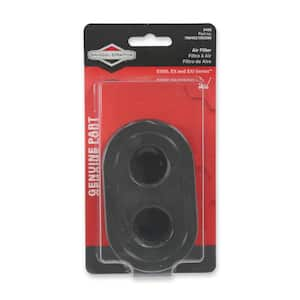
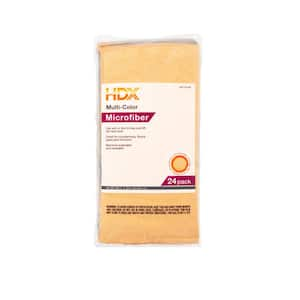
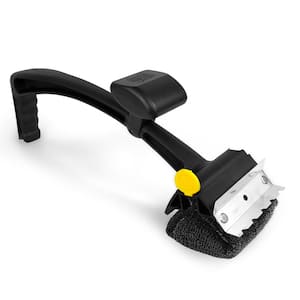
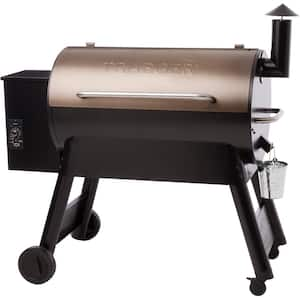
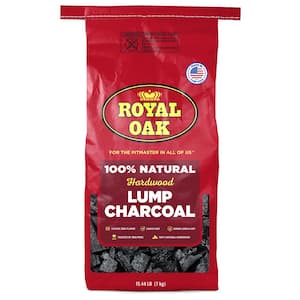
)
/17_514245_S_012_Product%20Image%20(square).jpg?im=Resize=(300,300))
)
;Resize=(300,300))
)
)
;Resize=(300,300))
)
)
;Resize=(300,300))
;Resize=(300,300))
/2021_PKG_Edging_205465972_L_Product%20Image%20(square).jpg?im=Resize=(300,300))
)
;Resize=(300,300))
;Resize=(300,300))
)
;Resize=(300,300))
.jpeg?im=Crop,rect=(363.69230769230774,1.2307692307692308,958.7692307692308,958.7692307692308);Resize=(300,300))
;Resize=(300,300))
;Resize=(300,300))
)
;Resize=(300,300))
)
)
)
;Resize=(300,300))
)
)
)
)
;Resize=(300,300))
)






































